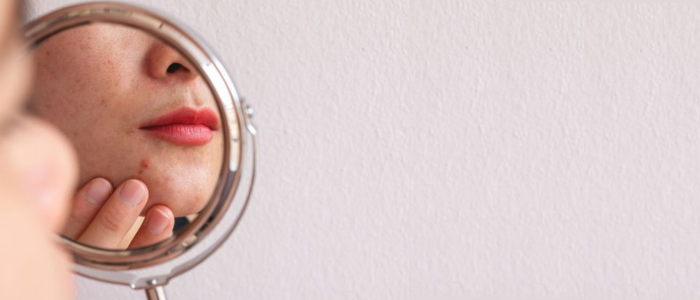Stress can have a significant impact on your skin, manifesting in various ways due to the complex interplay between stress-related hormones and the skin's structure and function. Here's a comprehensive overview of how stress affects your skin:
1. Hormonal Changes and Acne
Stress triggers the release of cortisol, the body's primary stress hormone, which can lead to an increase in oil production in the skin. This excess oil can clog pores, leading to acne breakouts. Studies have shown that stress can exacerbate existing acne conditions and may slow the healing process of acne lesions, making them more persistent and severe.
2. Skin Aging and Wrinkles
Chronic stress can accelerate the skin aging process, contributing to the formation of wrinkles and fine lines. Cortisol can break down collagen and elastin, the proteins responsible for maintaining the skin's elasticity and firmness. This breakdown diminishes the skin's ability to regenerate, leading to premature aging.
3. Eczema and Psoriasis Flare-ups
Stress is known to trigger or worsen flare-ups of eczema (atopic dermatitis) and psoriasis. These conditions are characterized by dry, itchy patches on the skin, and stress can exacerbate these symptoms by causing inflammation and impairing the skin's barrier function.
4. Impaired Skin Barrier
Stress can disrupt the skin's barrier function, making it more susceptible to irritation and infection. The skin's outer layer, known as the stratum corneum, can become compromised under stress, leading to dryness, itchiness, and an increased risk of developing rashes and other skin conditions.
5. Other Skin Conditions
Stress can also aggravate other skin conditions, such as rosacea, hives, and fever blisters. It can increase inflammation throughout the body, which can lead to flare-ups of these conditions. Additionally, stress can interfere with daily skin care routines, further exacerbating skin problems.
Managing Stress for Healthier Skin
Managing stress is crucial for maintaining healthy skin. Techniques such as regular exercise, meditation, adequate sleep, and maintaining a balanced diet can help reduce stress levels. Additionally, adopting a gentle skincare routine and avoiding the temptation to pick or squeeze pimples can prevent further skin damage.
In summary, stress has a profound impact on skin health, contributing to conditions like acne, premature aging, eczema, and psoriasis. Managing stress through lifestyle changes and proper skincare can help mitigate these effects and promote healthier, more resilient skin.
Managing stress and its effects on the skin can be approached through a combination of lifestyle changes and the use of specific supplements like those from CanPrev. Here’s how you can integrate these strategies:
Lifestyle Changes to Manage Stress
- Regular Exercise: Engaging in physical activity can help reduce stress levels and improve your overall health, which in turn can enhance your skin's appearance.
- Adequate Sleep: Ensuring you get enough sleep is crucial for reducing stress. Sleep helps to repair your body and regulate stress hormones.
- Healthy Diet: Eating a balanced diet rich in antioxidants and nutrients can support skin health and reduce the physiological impacts of stress.
- Mindfulness and Relaxation Techniques: Practices such as yoga, meditation, and deep-breathing exercises can significantly decrease stress levels.
- Social Support: Maintaining a strong social network can provide emotional support and alleviate stress.
CanPrev Supplements for Stress Management
1. Adrenal Chill Capsules: These capsules contain KSM-66 Ashwagandha and L-Theanine, which are known for their stress-reducing properties. Ashwagandha is an adaptogen that helps to moderate the body’s response to stress, reducing cortisol levels and improving resistance to stress. L-Theanine promotes relaxation without sedation, enhancing the ability to focus during stressful situations.
2. Magnesium Stress Release: This supplement includes magnesium bis-glycinate, Sensoril Ashwagandha, and vitamins B5, B6, and C. Magnesium plays a critical role in nerve function and stress response; it helps prevent the body from expelling too much magnesium during stressful periods. Ashwagandha supports stress reduction, while B-vitamins and vitamin C are essential for the adrenal glands' proper function, helping to manage the production of stress hormones.
Recommended Usage
- Adrenal Chill Capsules: The recommended dosage is one capsule, two times per day. This can help increase resistance to stress and anxiety, thereby improving overall quality of life and potentially benefiting skin health by reducing stress-induced skin issues like acne and eczema.
- Magnesium Stress Release: Taking three capsules per day as directed can help restore mental calmness, aid irritability and concentration, and encourage quality sleep, all of which contribute to lower stress levels and healthier skin.

